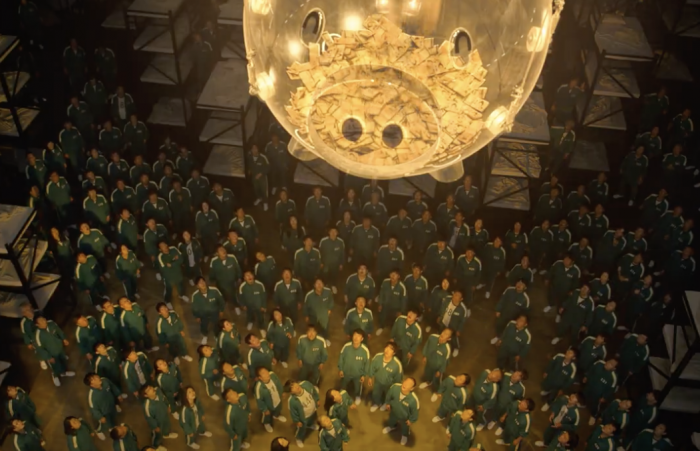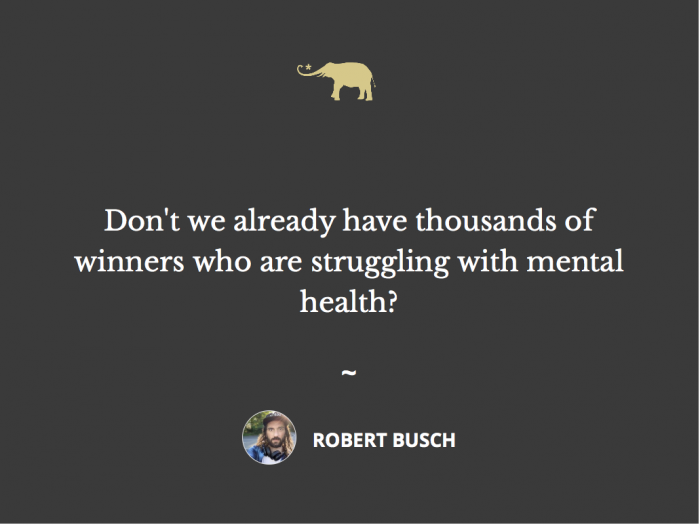Editor’s note: extreme spoilers ahead!
I hesitated to watch “Squid Game” because I am not a fan of hyper-violent entertainment.
But after watching it, there is just one word to describe the experience: “Wow!”
I was expecting a lot of violence, triggers, and drastic imagery—but got surprised by the thought-provoking plot that goes far beyond an ordinary horror movie.
So, what is the “Squid Game?”
Is it criticizing Capitalism, as North Korean and Chinese media suggest? Or is it a manifesto against Communism? Maybe it is just a perfectly written story with the goal to attract as many viewers as possible to make as much money as possible?
It’s hard to tell, and that’s what makes “Squid Game” so fascinating on several levels. Of course, there is a disturbing level of brutality, but the most shocking part is the questions it makes us ask ourselves.
How far would we go to change our lives forever? Would we join the games?
A friend of mine said that “Squid Game” was the perfect metaphor to describe the corporate world—and that really got me thinking.
Isn’t the corporate world somehow like “Squid Game?” Nobody gets killed for not meeting deadlines, goals, and completing tasks, but getting fired might feel like dying to some of us. How do we feel when we hear the story of a former manager who lost his or her home and ended up being homeless? Could that happen to us too?
Many of us are struggling with debt. But how broke do we need to be to risk our lives?
And isn’t it scary that we even ask ourselves these questions? What does that tell us about our understanding of self-worth, society, and ethics?
At the same time, “Squid Game” emphasizes that every participant has the same rights while playing the game. The hosts keep pointing out that nobody was forced to join the games. But after watching the nine episodes, we might question our understanding of what fairness actually means?
All participants sleep in the same room, get the same food, and share the fear of dying. But some of them start ganging up against others, try to manipulate each other, and start murdering their rivals. But apparently, the hosts do not feel the necessity to intervene in any of these incidents—they stay neutral.
And isn’t that the biggest argument against Communism? What we see in “Squid Game” is a group of people who come together under the illusion of equality and then end up breaking up in different gangs fighting each other. Nobody told the participants to do that, but they somehow naturally ended up in a civil war against each other.
The conflicts in between the participants distract them from questioning the game itself—and isn’t that the definition of the class struggle described by Karl Marx?
But besides thinking about the question of whether “Squid Game” represents Capitalism or Communism (or maybe both), we also naturally ask ourselves, “What would we do? What kind of behavior would make us win the games?”
The plot of “Squid Game” is happening in South Korea, but people around the world are able to identify with the characters. This story could be taken into any other society with similar results.
Wait, what?
Isn’t it interesting that the three finalists represent exactly the types of personalities that usually succeed in the real world? We have the emotionally numb businessman, the emotionally intelligent risk-taker, and a woman who forces herself not to show any emotions.
And what about the ones who get killed along the way? We see the woman who tries to save herself by clinging to a criminal, we see a doctor who is trying to gain privileges by breaking the rules, and we feel sorry for the migrant who gets fooled by someone he trusted.
This show is far more than just a few hours of excessive violence; it is the darkest mirror we have ever looked into. We would like to think that this story is so far away from our real life—but is it?
Is it even possible to create a fair competition when our life depends on it? Aren’t we all somehow struggling to survive in a world that challenges us every day? We might not play children’s games, risking getting killed, but we all heard stories about folks who lost everything and ended up on the streets. And we don’t want to end up like that.
Is that the fear that keeps us going? Is that what keeps our society going? Is the hope to win the jackpot keeping us in the game?
After the first game, the participants voted to end the games. But most of them returned for the second game. The players had the chance to end the games at any point after that but decided not to.
And isn’t that the most troubling part about “Squid Game?”
Why do we keep playing a game that could kill us in the end? Why don’t we use our voices to end the games? Is it because we hope to win the game?
But what if we win the game? Does any money in the world give us back our peace of mind after trying to get everyone around us killed?
The winner of “Squid Game” ends up depressed and traumatized. How does that relate to the millions of hard-working people on this planet who made a fortune without being able to enjoy it?
Don’t we already have thousands of winners who are struggling with mental health?













Read 6 comments and reply